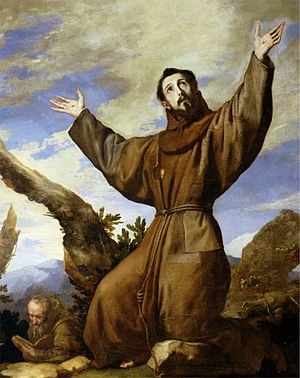It would seem Father Francis is very fashionable. Everywhere you turn there are groups of good people wanting to fit him with 21st century social, environmental, and political garb in order to suit a particular idea. He has been crowned: the patron saint of liberation theology, champion of social justice, and hero of PETA. St. Francis of Assisi is unique and does not lend himself to anything but what has always been, namely, Catholic social teaching. These teachings have been articulated by the Fathers and Doctors of the Church from the earliest of Christian history. They all have one thing in common: Christianity has absorbed and adapted cultural, even pagan ideas, which agree with its core beliefs. For example, the philosophy of Socrates and Plato have some Christian elements that can be adopted. However, ideas which are based on Marx, need incredible amounts of purging to be compatible with an already defined and historical Catholic social doctrine. In addition, ideas that undermine God's hierarchy of being itself by making all of His creatures somehow equal and subject to the same rights as humans could be viewed as contradictory to the teaching of the "image and likeness of God". Francis and the Franciscan Order recognized they would not change the world sometime in the future, or end all distinction between rich and poor. They were committed to charity, peace, and poverty. If Francis were here he might just tell us that love, in imitation of Christ, is truly a salvation issue first, saving all souls should be primary. Sainthood and individual perfection were primary for "real fraternity" while the human community and the world around us were tools for serving God and earning eternal life. JMJ. Mick, SFO
